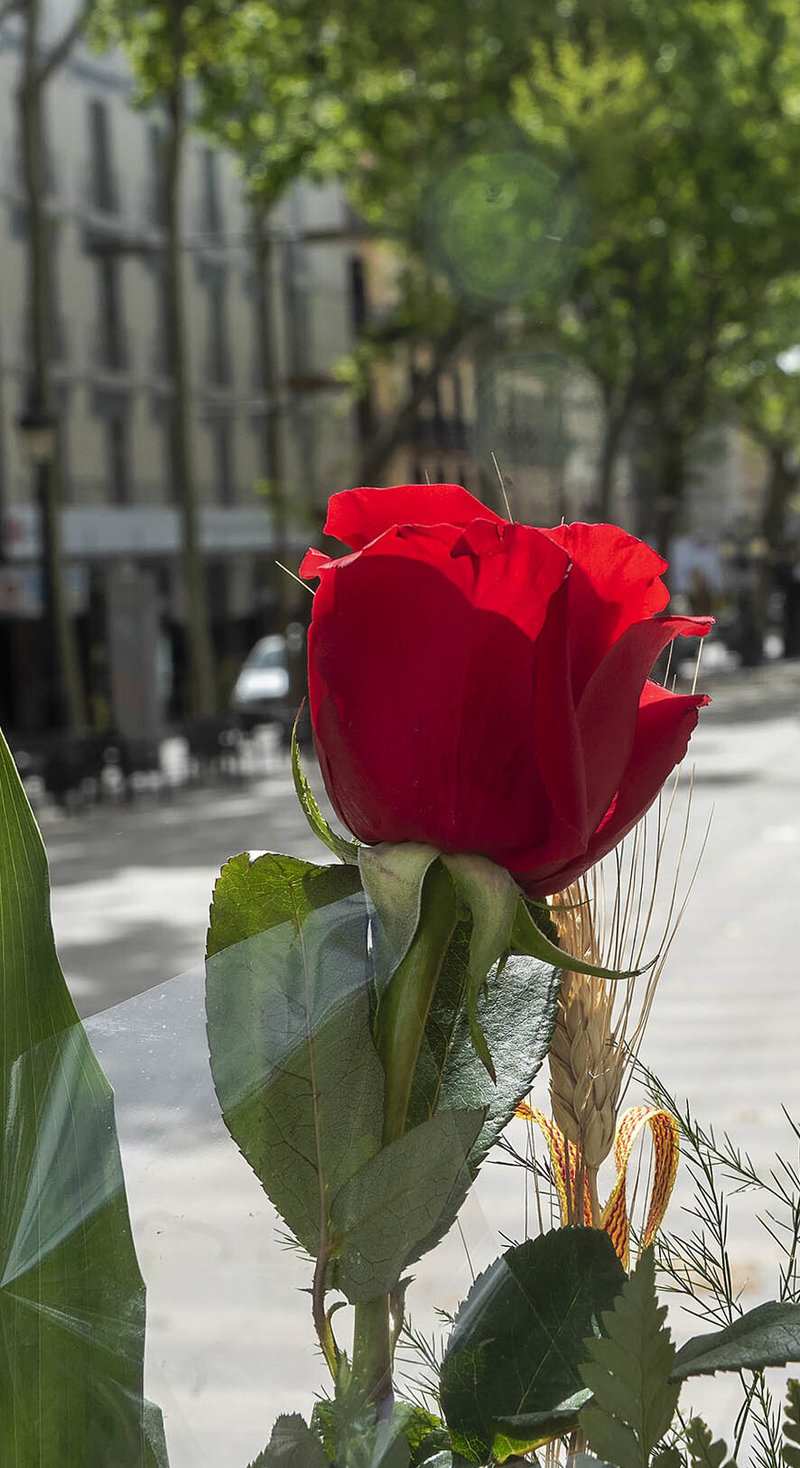Books and roses till midnight
The publishing and flower sectors organising the Sant Jordi celebration put back from April 23 to July 23 due to the coronavirus crisis are working to install up to 300 stalls in Barcelona that will stay open until late
Among the many public events cancelled or postponed due to the coronavirus pandemic was the Diada de Sant Jordi, Saint George’s Day, the saint’s day of Catalonia’s patron, which is normally celebrated on April 23. Putting back this year’s Sant Jordi festivities to July 23 was not only a blow to many people in Catalonia, who always come out in their thousands every year to take part in the celebration of reading and romance, but also to the local publishing and bookseller industry and the flower sector.
One of the reasons Sant Jordi is such a popular festivity in Catalonia is down to the unique tradition on that day, which sees loved ones exchange books and roses. In fact, as many as six million roses are sold on that day alone, while it is also the most important day of the year for writers, publishers and booksellers, with book sales accounting for 6% of the sector’s annual turnover.
The exceptional circumstances this year, with the Covid-19 crisis in full swing and Spain subject to a state of alarm that kept shops closed and people confined to their homes, means that the essential revenue from Sant Jordi will be much reduced for both sectors. Yet, not all is lost. Although it has been postponed, the festivities will go ahead and the event’s organisers have begun to release details about how they intend to go about holding this year’s atypical Sant Jordi.
According to the publishing, bookseller and flower sectors, they are working to have between 200 and 300 stalls on the streets of Barcelona on July 23, which is about a third of what they would normally have, but they are also intending to get the most out of the day by keeping the stalls selling books and roses open until midnight.
Meeting writers
Sant Jordi’s Day is also a unique opportunity for writers to meet their readers in day-long book signings that generally attract large crowds of people. Such encounters are not viable this year due to the continuing coronavirus restrictions, but the organisers are keen to maintain the spirit of the event and have proposed that signings could be done by appointment.
In general, the organisers are determined to overcome the obstacles presented by the crisis so that there will be as little disruption as possible to the belated Sant Jordi’s Day celebrations. All the sectors involved have been carrying out negotiations with the public authorities to come up with a plan that will then be validated by the Procicat civil protection agency, which is supervising all the measures in the country to prevent further contagion of Covid-19.
Various sources from the publishing and flower sectors consulted for this article say that the idea is for the model that will finally be approved for Barcelona to serve as a basis to help other Catalan cities to organise their own Sant Jordi’s Day celebrations, with each municipality taking the appropriate health and safety measures to control the capacity of venues and avoid congestion in public spaces.
“Unthinkable and unviable”
In Barcelona on a regular Sant Jordi’s Day there are usually close to a thousand stalls set up in a variety of public spaces. However, this year such a thing would be “unthinkable and unviable”, according to the same sources. Therefore, the Chamber of Commerce of the Book says it wants to only give stall licences to a limited number of bookstores, publishers and florists. At the same time, with the state of alarm now over, all of the city’s bookshops will be open on July 23.
In the specific case of Barcelona, the stalls will be located in the city centre, from Passeig de Sant Joan to the Ciutat Vella and Eixample neighbourhoods, with most located in the city’s most emblematic sites of La Rambla and Passeig de Gràcia. The intention is to organise the festivities in larger, more open spaces than is usually the case, so that people can move around without fear of contagion. They are even looking into the possibility of creating small circuits and a greater separation between the stalls.
The organisers also point out that there will most likely be an institutional promotion campaign that focuses on July 23 in order to encourage people to participate in the celebration of the book and the rose. However, the biggest question currently facing the sectors is what the public response will be to a Sant Jordi’s Day that has never been seen before.
feature
Online book sales go up during lockdown
The online bookstore platform Libelista tripled its book sales during the Covid-19 lockdown, selling more than 12,000 books in two and a half months, reaching 100,000 users, and significantly increasing the number of participating bookstores to 134, a rise of 20% in just a few weeks. The platform was created in 2015 and brings together independent bookstores across Spain. Sales rose considerably in the week before Sant Jordi and on April 23 itself online sales peaked at 1,600 books sold and 1,000 orders placed in a single day.

